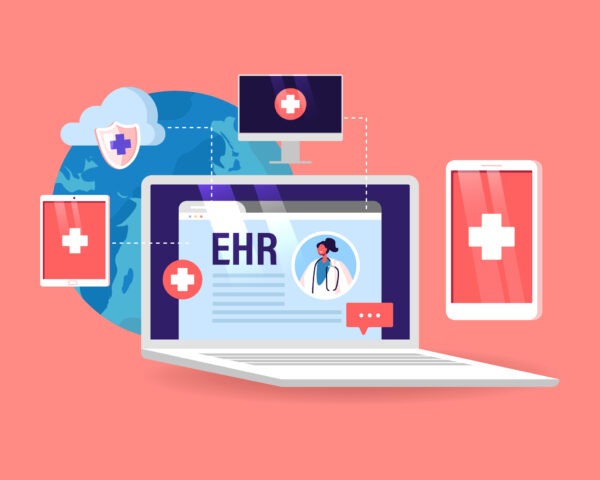
In the United States, there are roughly one million mental health professionals serving a population of 330 million people. Despite the urgent need for mental health services, these clinicians are burdened with an overwhelming amount of administrative work. In fact, up to 25% of their time is spent on non-clinical, administrative tasks. While technologies like Electronic Health Records (EHRs) were introduced with the promise of easing this burden, the reality has been the opposite. Instead of reducing admin work, many EHRs have increased the time clinicians spend on these tasks, failing to meet the unique demands of mental health professionals.
Rather than simplifying clinical workflows, traditional EHR systems often add layers of complexity, creating new challenges and frustrations for clinicians who are already grappling with burnout. From a lack of tailored features to cumbersome and inefficient processes, mental health professionals are left to navigate systems that weren’t built with their specialized needs in mind.
In this article, I explore three key ways EHRs have failed mental health clinicians and highlight the need for a new generation of solutions that truly understand and support their vital work.
How EHRs evolved to lack specialization
EHRs have been around since the 1960s. At the time, they were groundbreaking but primarily used in hospitals. Independent clinicians, including the majority of mental health professionals, rarely had access to these costly systems and instead managed their practices using pen and paper.
A significant turning point for EHR adoption came in 2009 with the passage of the Health Information Technology for Economic and Clinical Health (HITECH) Act, which allocated $27 billion in government funds to incentivize healthcare providers to adopt digital records. The Patient Protection and Affordable Care Act (ACA) of 2010 further accelerated this trend by promoting value-based care and coordinated healthcare models, both of which depended on digital records for tracking patient outcomes and improving care efficiency. These laws transformed the healthcare landscape, pushing providers to adopt EHRs on a large scale.
Most of the funding and focus, however, went to large healthcare enterprises, such as hospitals, whose needs were vastly different from those of independent practitioners — especially independent mental health clinicians. For mental health professionals, many workflows differ significantly from traditional medical practices. For instance, some clinicians practice group therapy, a modality that, even today, is poorly supported by most EHR systems. These therapists are left to cobble together workarounds that don’t fully meet their needs or streamline their processes.

What Are Healthcare Organizations Getting Wrong about Email Security?
A new report by Paubox calls for healthcare IT leaders to dispose of outdated assumptions about email security and address the challenges of evolving cybersecurity threats.
While hacking around an EHR may function temporarily, this approach often leads to confusion, errors, and inconsistencies that are difficult to transfer to other systems. Instead of serving as a helpful tool, EHRs often feel like a burden, reducing the time mental health clinicians can spend with patients and increasing the time they spend wrestling with technology.
Overburdened by administrative tasks
As noted earlier, EHRs were originally designed for large healthcare organizations, so independent mental health clinicians are now asked to navigate complex interfaces, non-intuitive workflows, and redundant administrative tasks. What may have been practical for a hospital with dedicated administrative staff is wholly impractical for a solo clinician just starting their practice.
To illustrate how severe this issue is, consider a recent study published in the Journal of General Internal Medicine, which found that healthcare providers spend nearly 6 hours per 8 hours of scheduled patient care using their EHR. For mental health clinicians, who already contend with high patient demand and emotional exhaustion, this imbalance is unsustainable.
The administrative burden imposed by EHRs takes a heavy toll, contributing to the burnout crisis that is ravaging the mental health profession. A 2023 report from the American Psychological Association revealed that over a third of psychologists reported experiencing burnout, with administrative tasks identified as a major contributing factor. Instead of enabling clinicians to focus on patient care, many EHR systems have become another source of frustration, adding countless hours of unnecessary work to an already jam-packed schedule.
Clinicians frequently express frustration over spending more time clicking through forms than actually engaging with patients. As one article aptly put it, healthcare professionals are suffering from “death by a thousand clicks.” The outcome is not just wasted time — it’s a system that exacerbates clinician burnout and worsens the ongoing mental health crisis.
A promising healthcare solution: AI and automation
With the advent of artificial intelligence (AI), healthcare is experiencing a technological paradigm shift. Industries across the board are AI and automation to improve efficiency, reduce workloads, and enhance outcomes. And yet mental health clinicians have largely been left behind by EHR systems that fail to integrate these transformative tools.
Most traditional EHRs still operate with outdated technology, forcing clinicians to manually input notes and other administrative details that could be easily automated. And for those EHRs that have implemented AI, many simply add another button or feature without thoughtfully considering the user experience — reminiscent of old MP3 players overloaded with features or calculator watches that were more of a gimmick than a practical tool.
In recent months, many standalone AI tools have emerged to fill this gap, but they often create more problems than they solve. These solutions are seldom integrated into existing EHR systems, which means clinicians must copy and paste between platforms, adding yet another step to their already complex workflows. Far from reducing administrative work, these disjointed tools increase it.
What’s even more concerning is the rise of what I call AI “mushrooms.” Just like mushrooms that appear quickly and vanish just as fast after a thunderstorm, these standalone AI services often sprout up overnight in recent days. Unfortunately, this attracts opportunistic players, some of whom are outside the reach of the US legal system. Clinicians must ask themselves: What happens to my notes or recordings if the company goes under or experiences a data breach? Do I trust my patients’ data to be managed by overseas management with limited accountability?
The solution is clear: EHRs need to fully implement AI and automation, but in a secure and seamless way. When AI is directly integrated into the EHR — designed with clinician workflows in mind — it not only improves efficiency but also ensures that patient data remains secure within the same trusted system. This gives mental health clinicians the opportunity to reduce their administrative burden and focus on personalized care without worrying about external security risks.
By neglecting AI and automation, traditional EHRs have created a bottleneck in the mental health field. Instead of adopting tools that could reduce administrative burdens, clinicians remain stuck with outdated systems that waste their time and energy. This doesn’t just lead to inefficiencies — it diminishes the quality of care patients receive.
In a time when AI could revolutionize mental health practices, clinicians are stuck with systems that fail to evolve with their needs. We can’t let the EHR history repeat itself.
Photo: invincible_bulldog, Getty Images
Ada Peng is a pioneering spatial data analyst and Chief AI architect at Orchid, a Y Combinator-backed healthcare startup revolutionizing the EHR landscape. As a key female leader in tech, Ada plays a crucial role in developing AI-powered solutions that significantly reduce the administrative burden on mental health clinicians. With a strong foundation in engineering, Ada’s interdisciplinary expertise allows her to bridge the gap between technology and healthcare innovation. Before joining Orchid, Ada honed her skills as an engineer at HNTB, a nationally recognized infrastructure firm and spoke at several major conferences on behalf of HNTB. Beyond her professional accomplishments, Ada is actively engaged in the tech community, organizing AI and healthtech meetups in San Francisco and New York. While pursuing her dual master’s degree in City Planning and Urban Spatial Analytics at UPenn, Ada founded the Urban Studies Workshop, showcasing her commitment to fostering innovation and leadership.
This post appears through the MedCity Influencers program. Anyone can publish their perspective on business and innovation in healthcare on MedCity News through MedCity Influencers. Click here to find out how.









